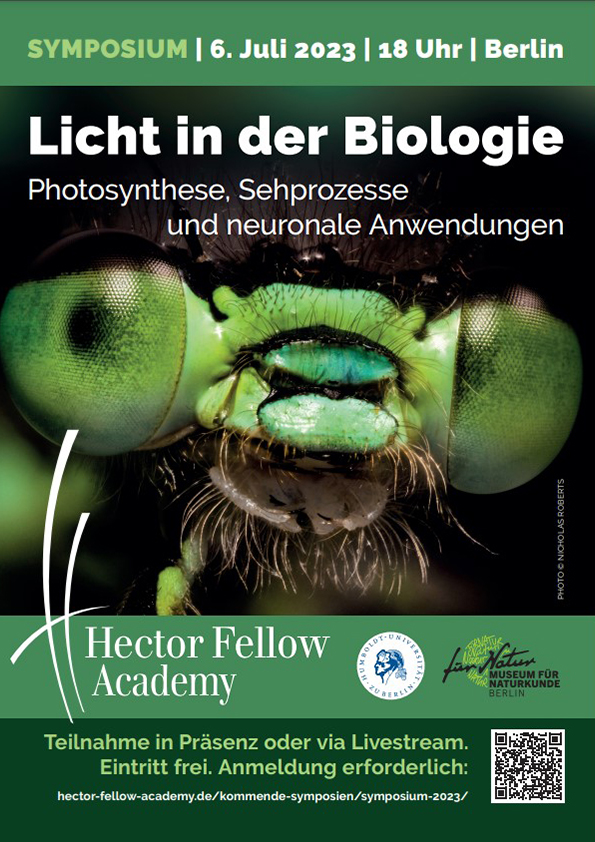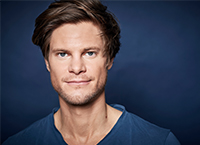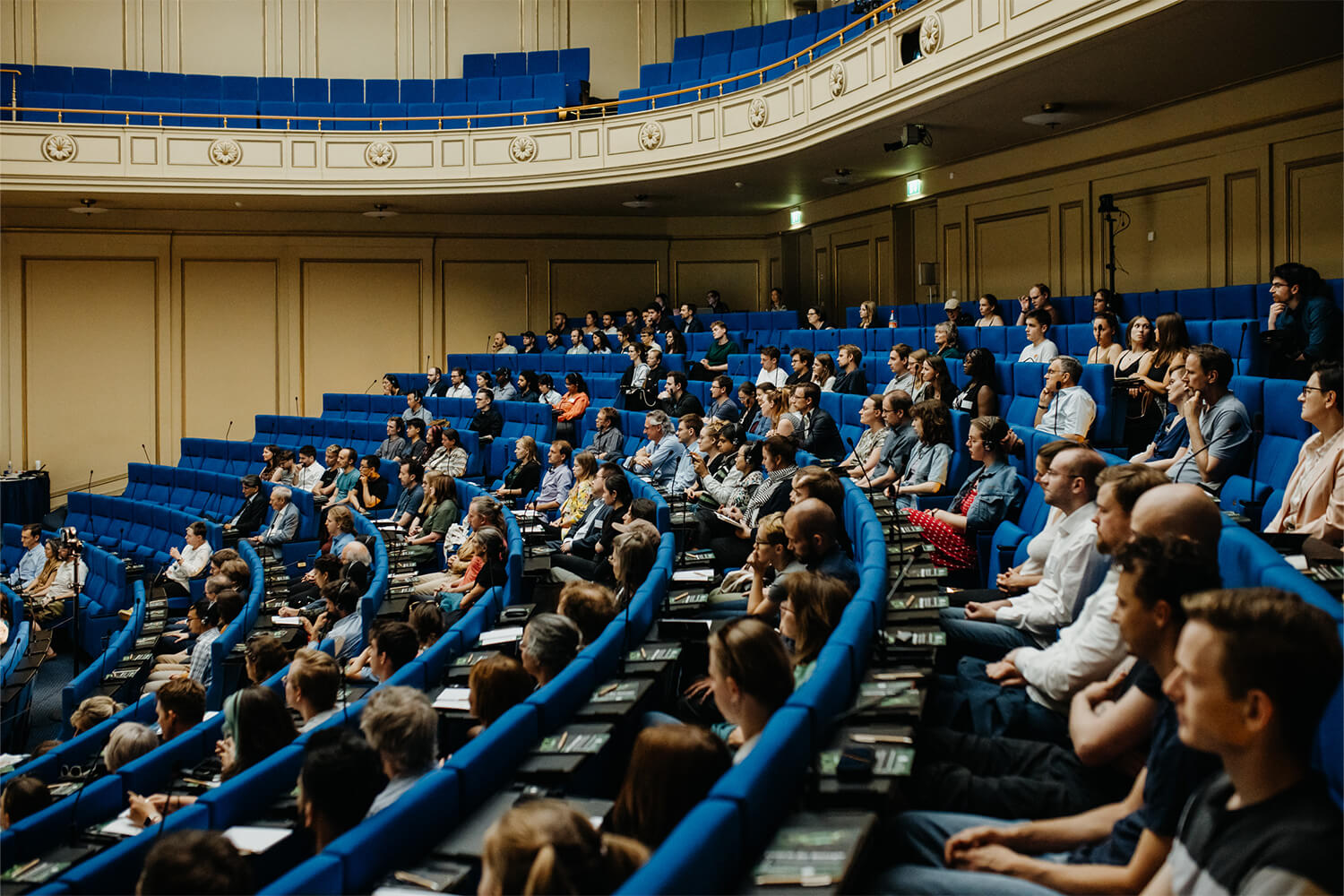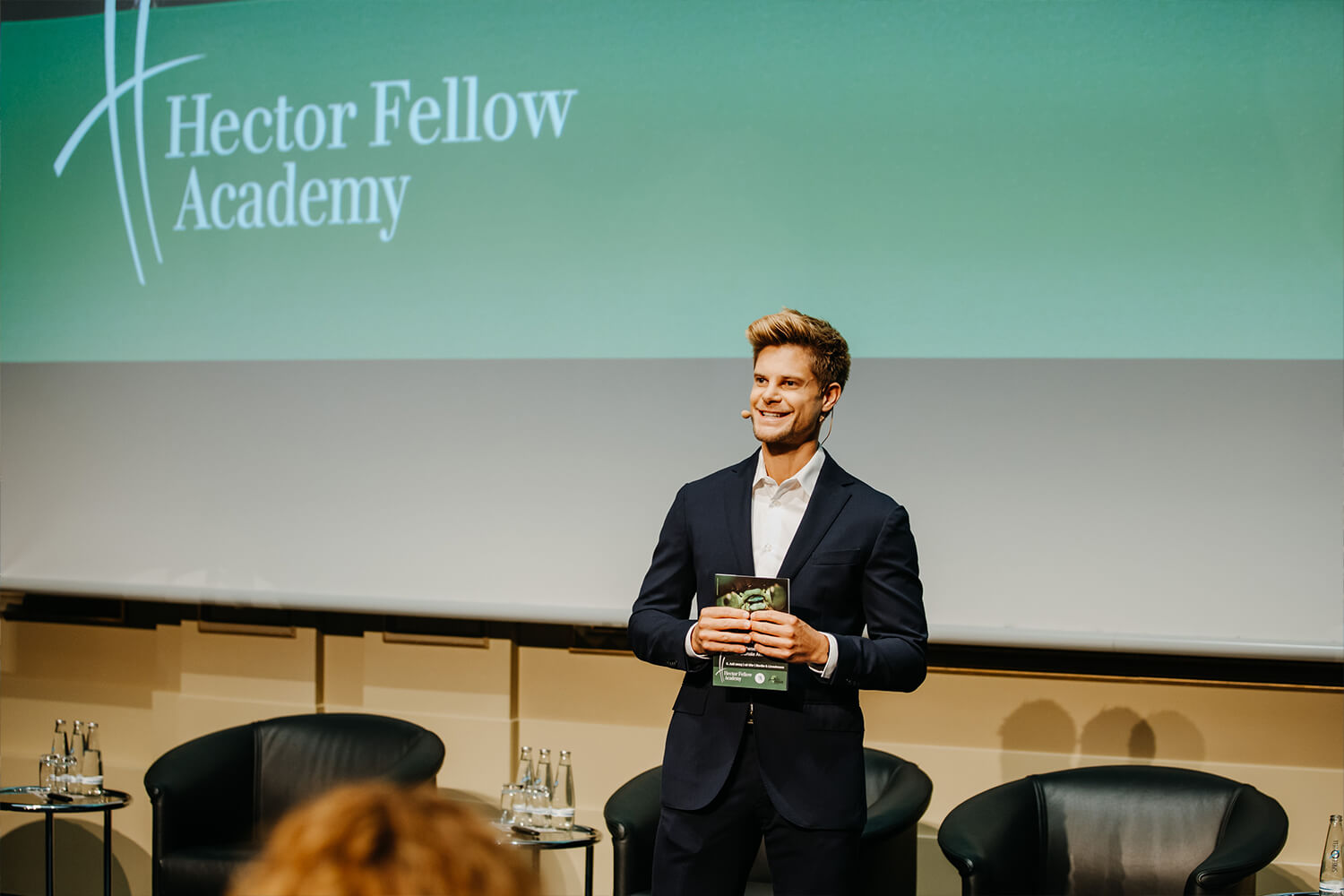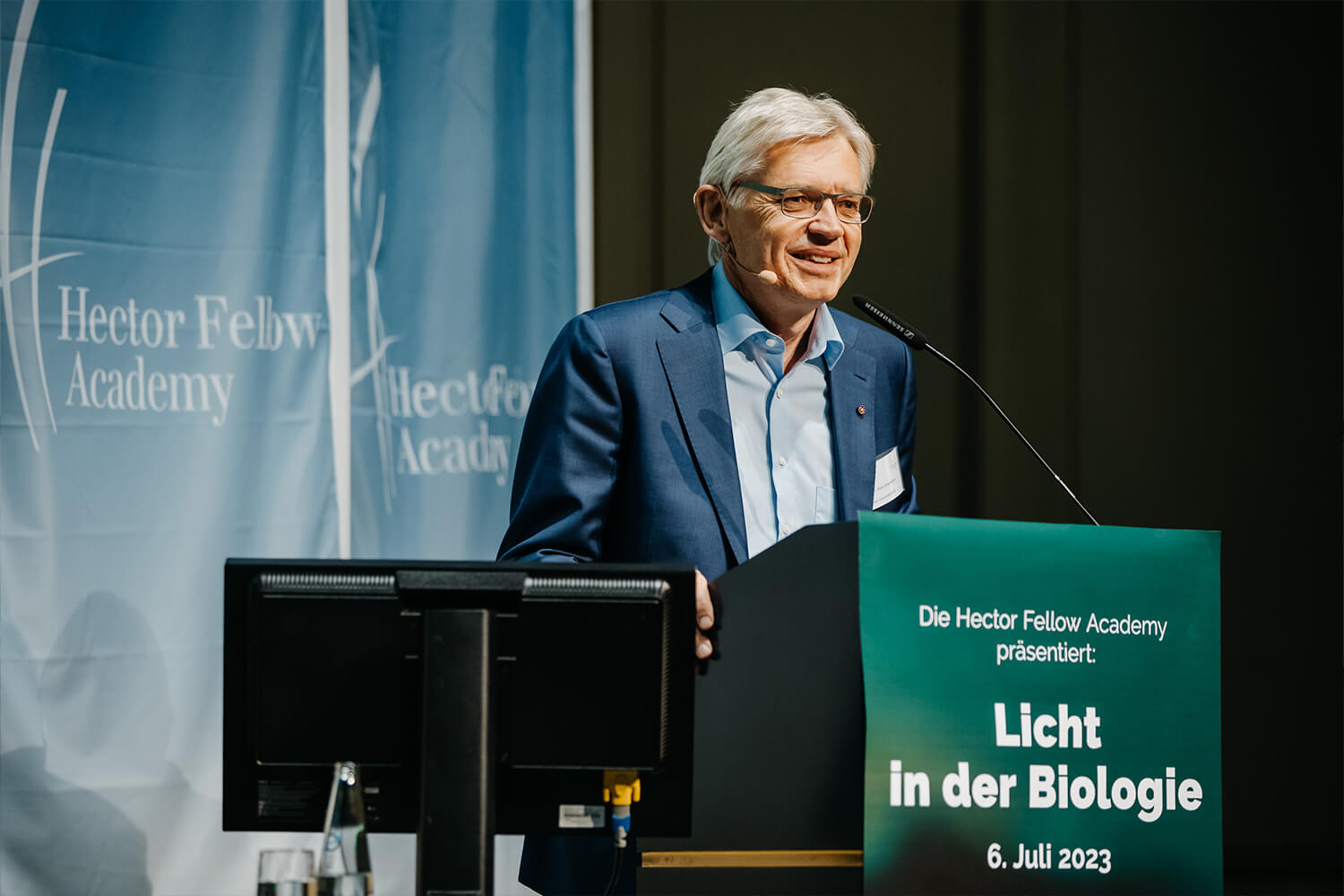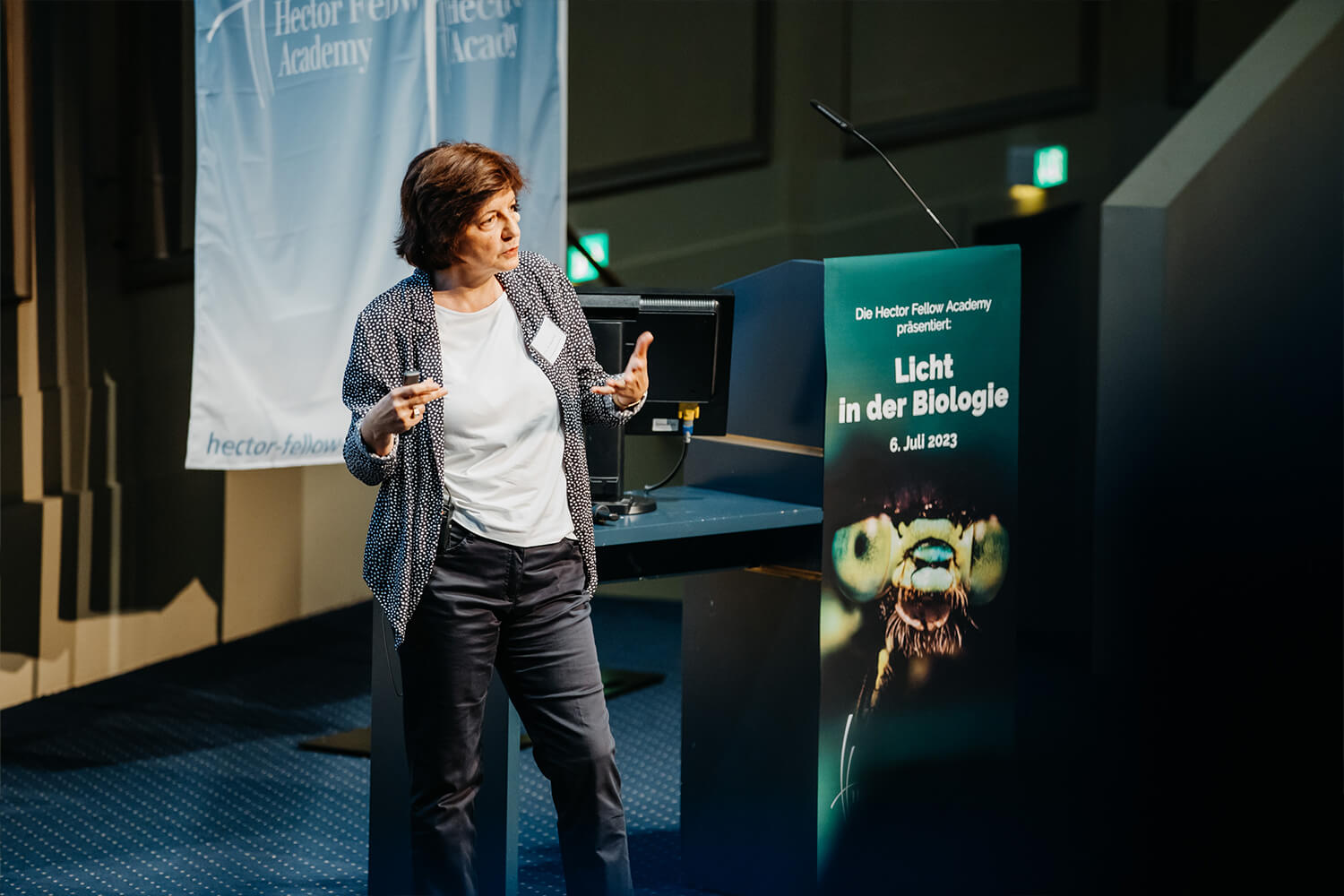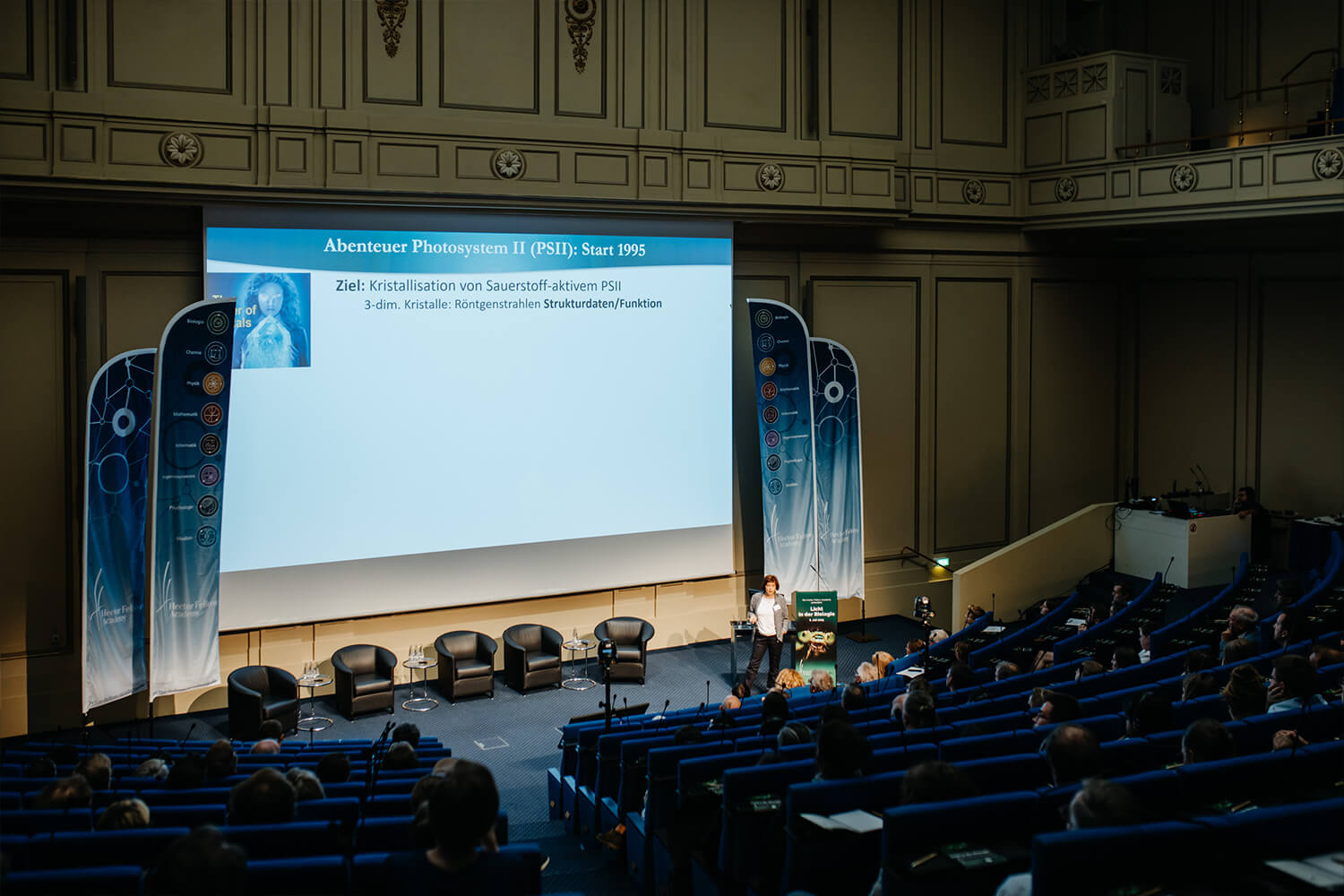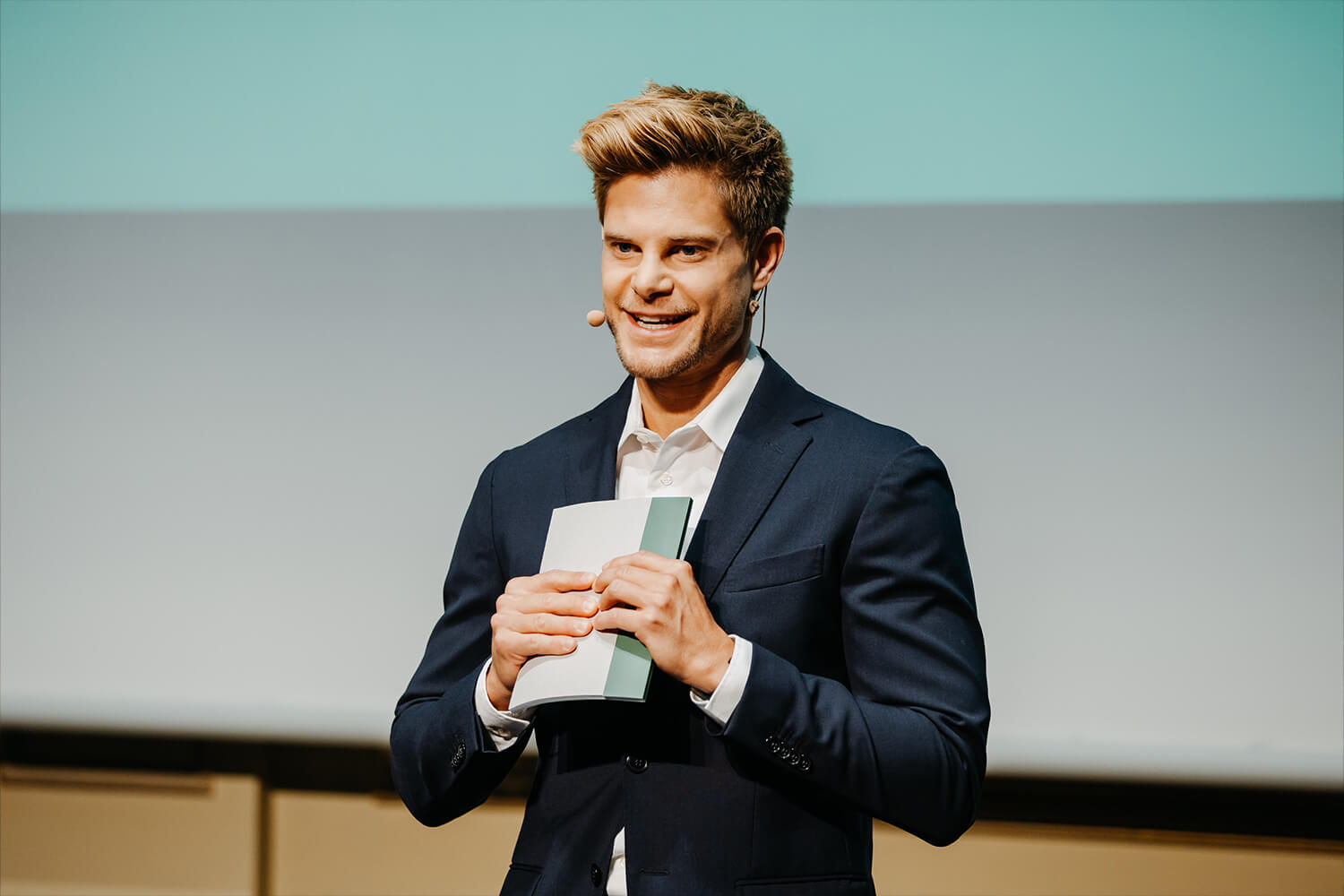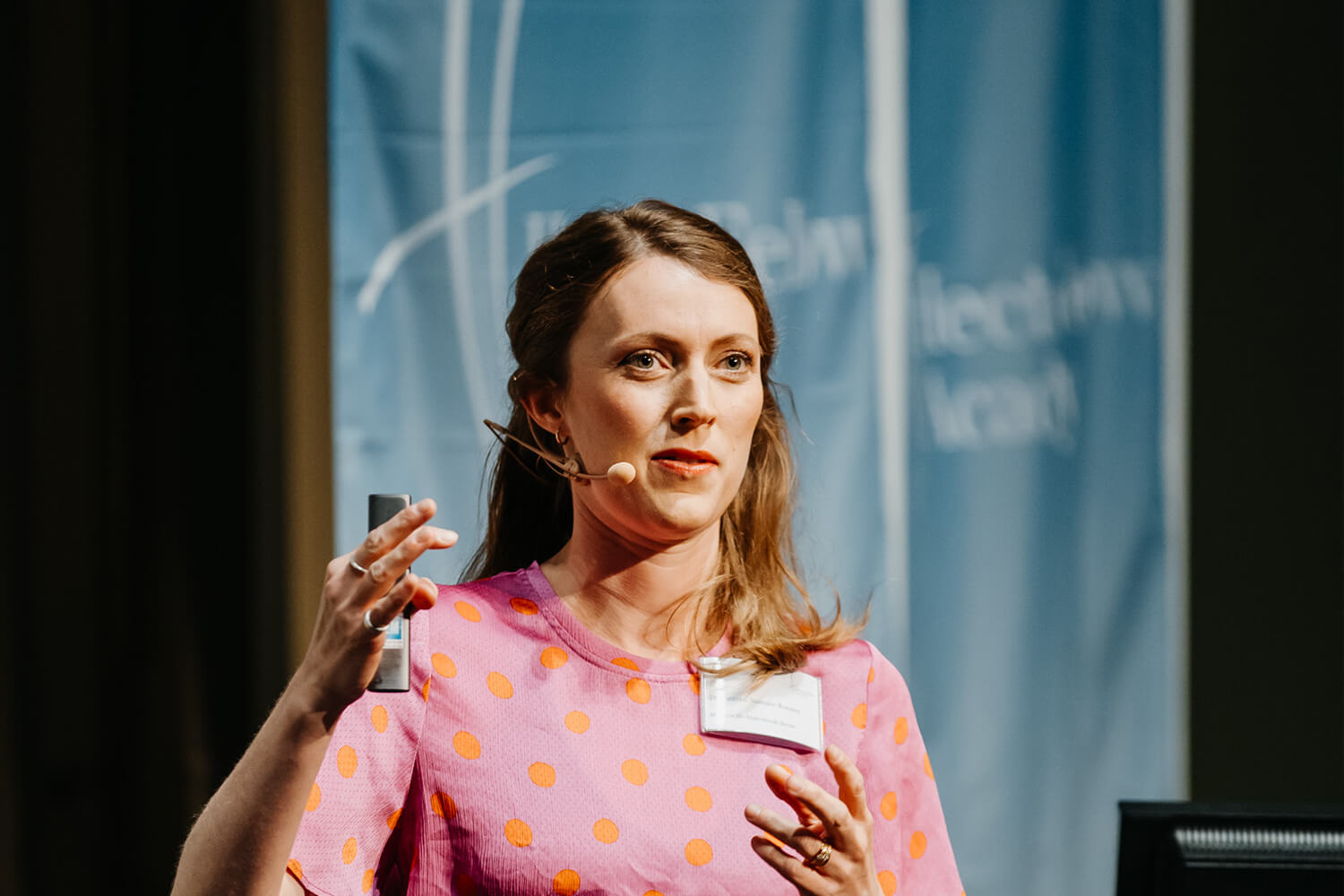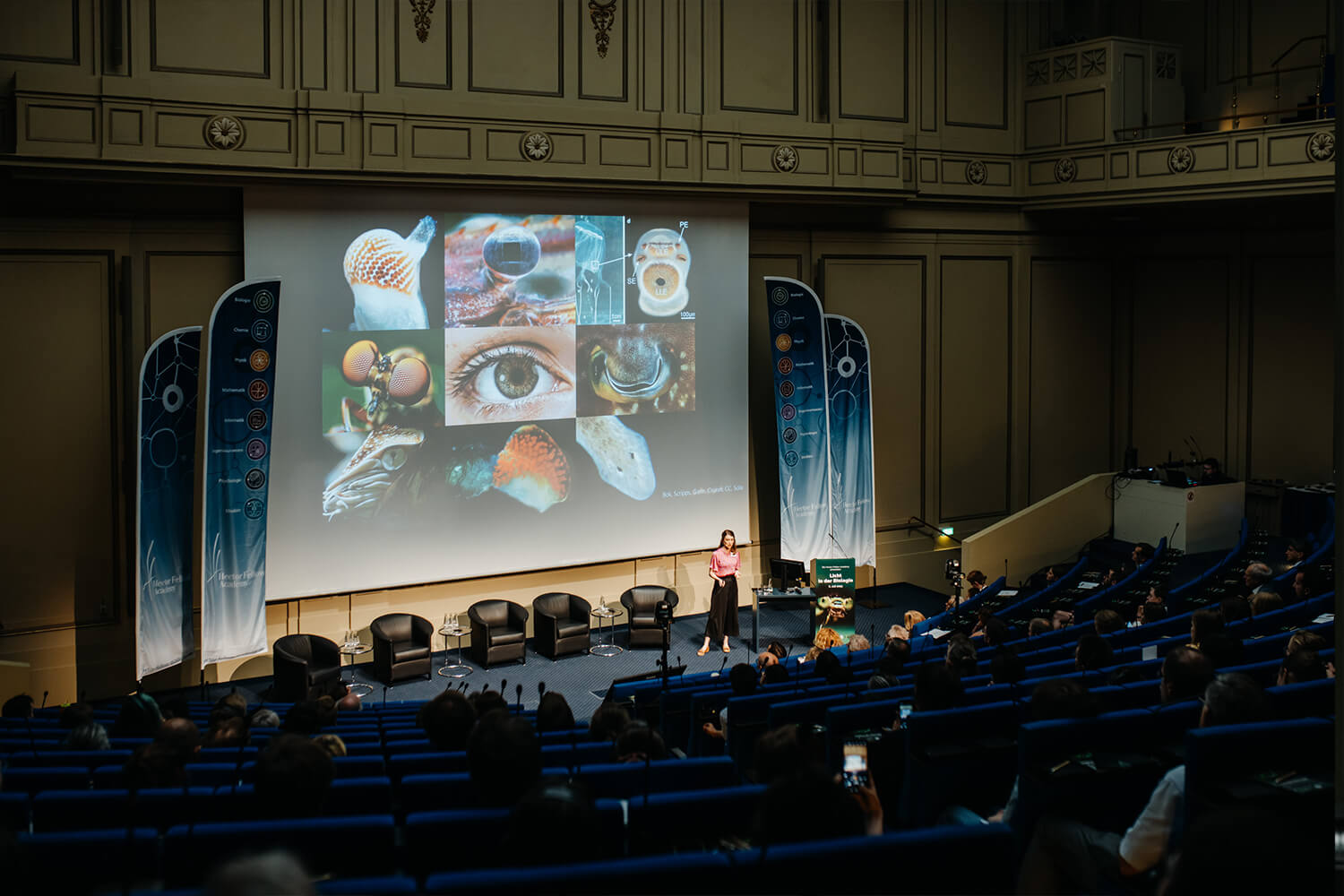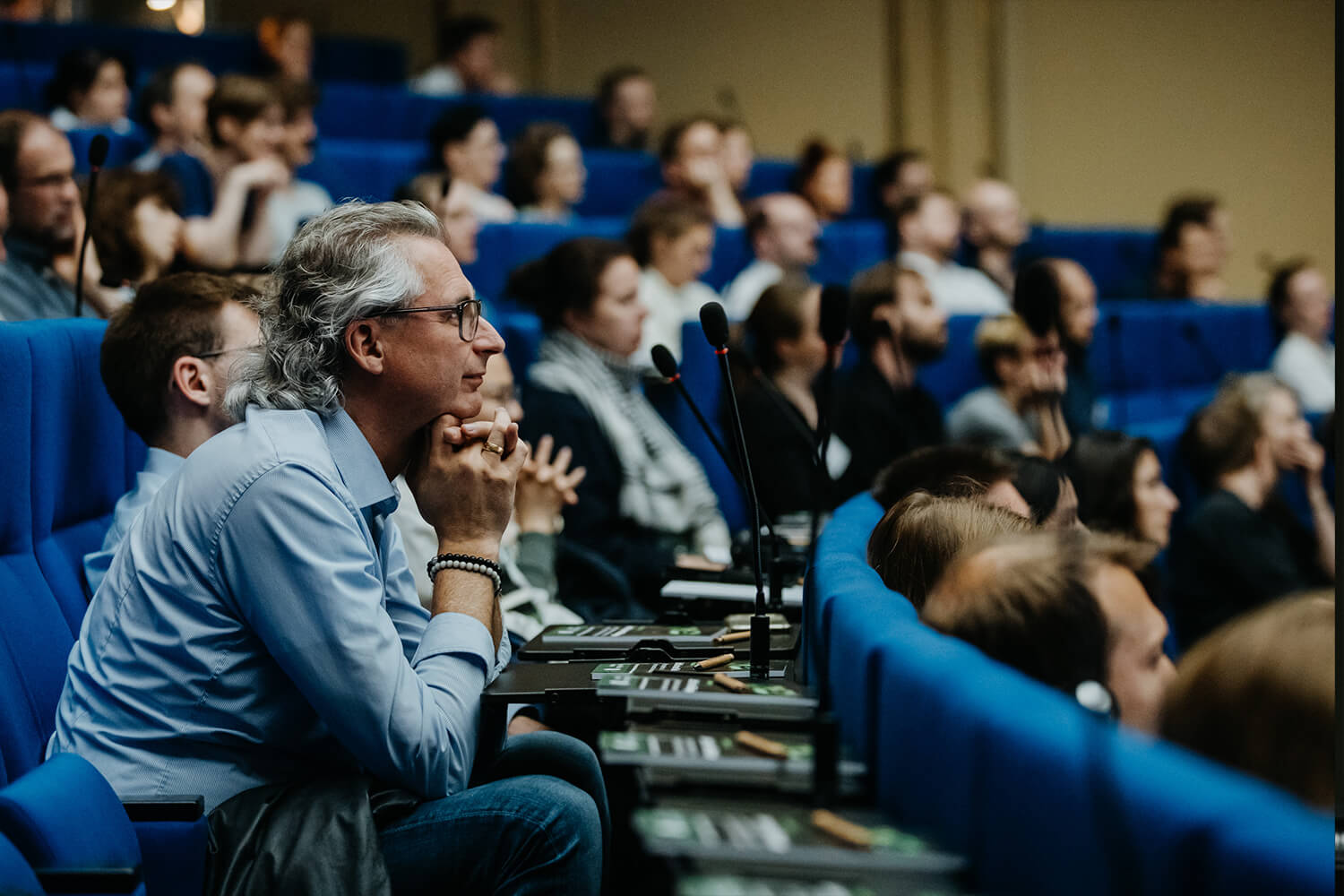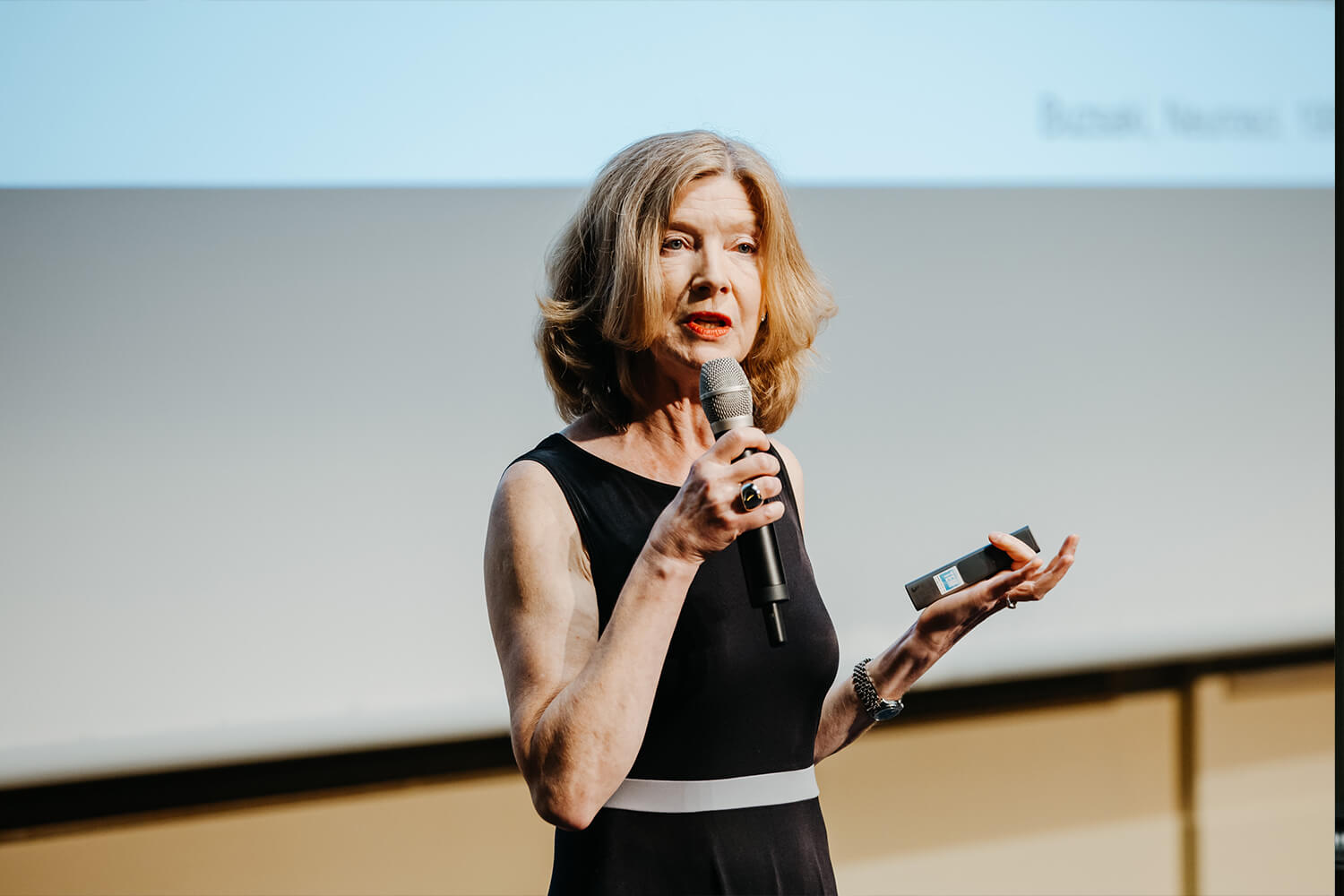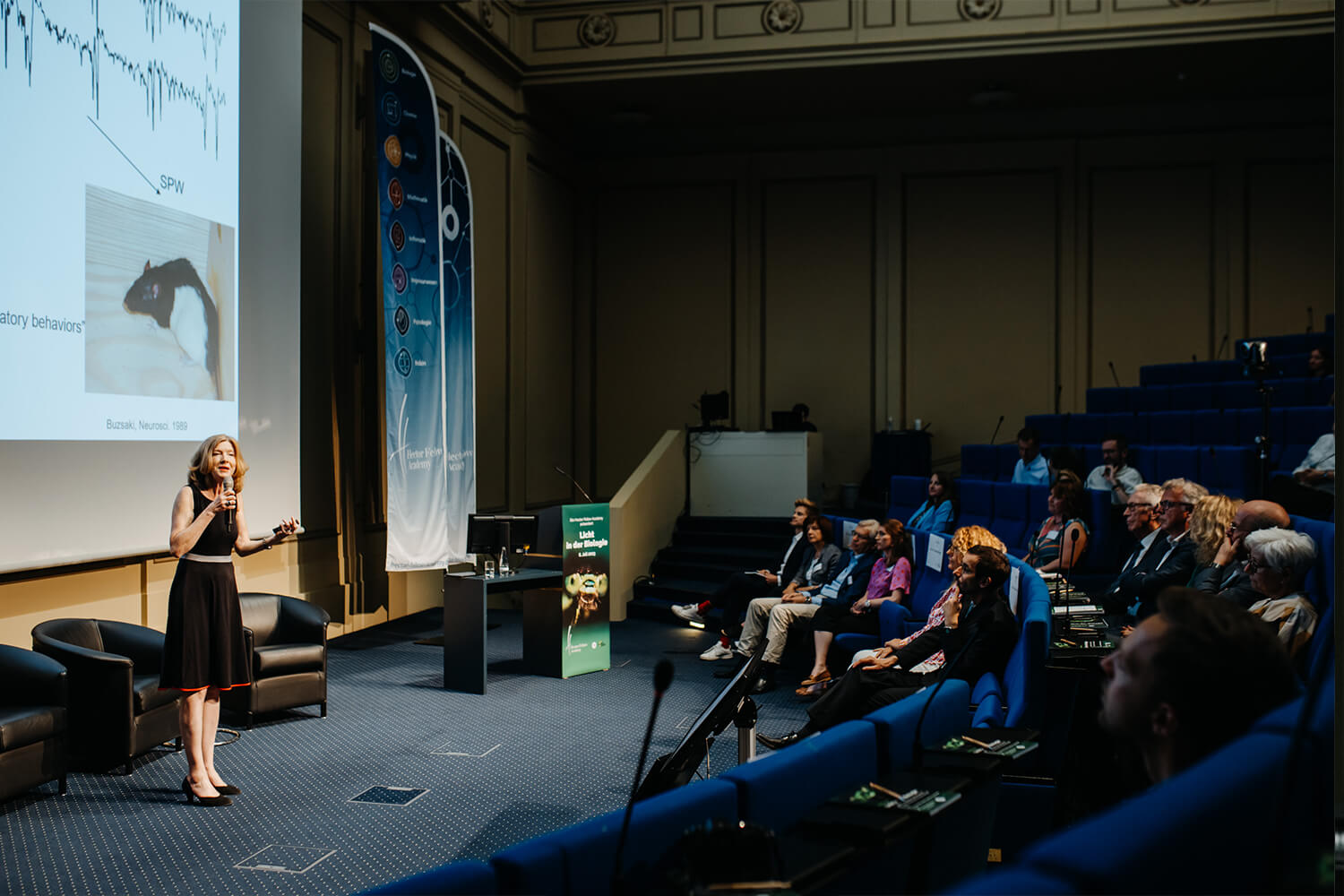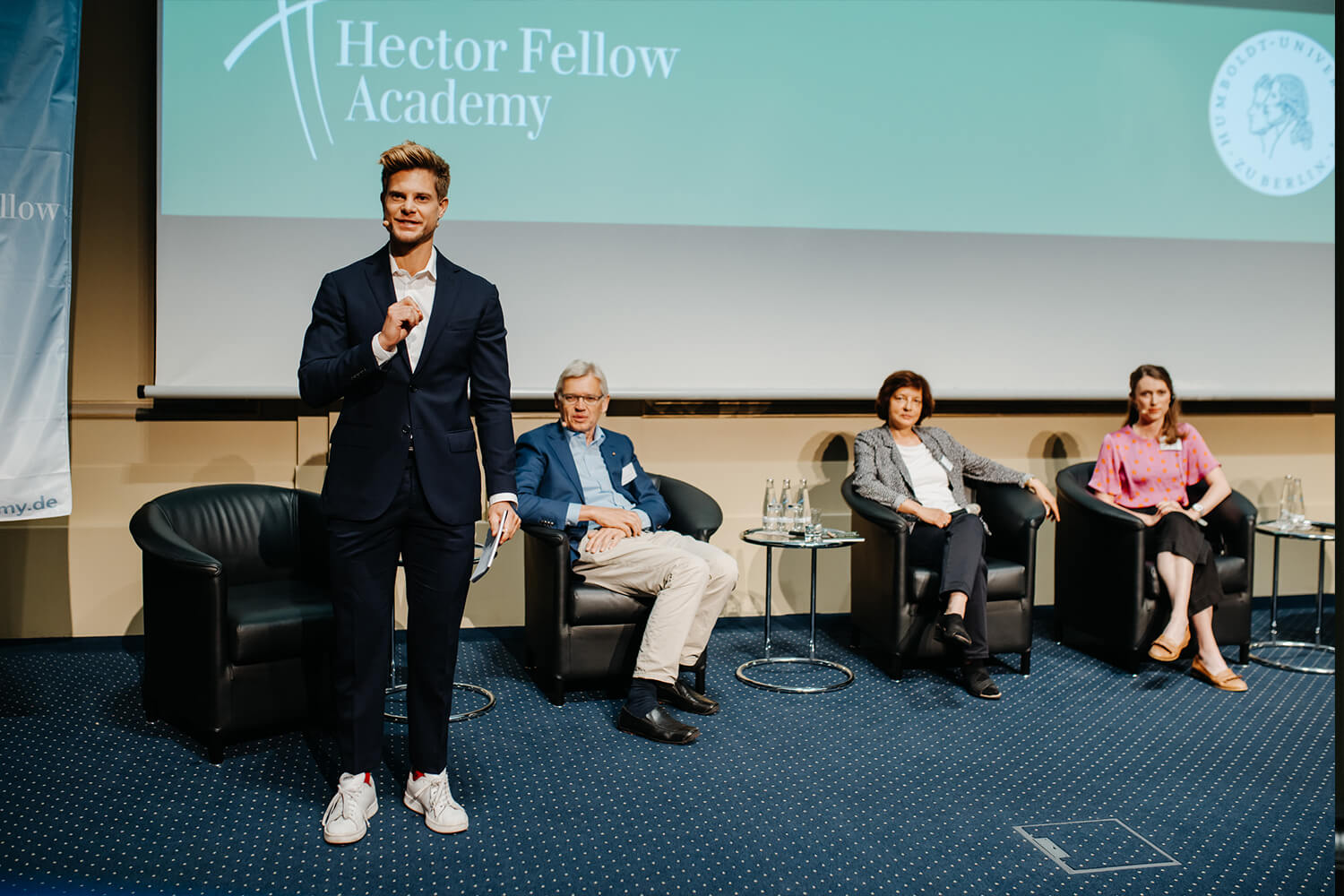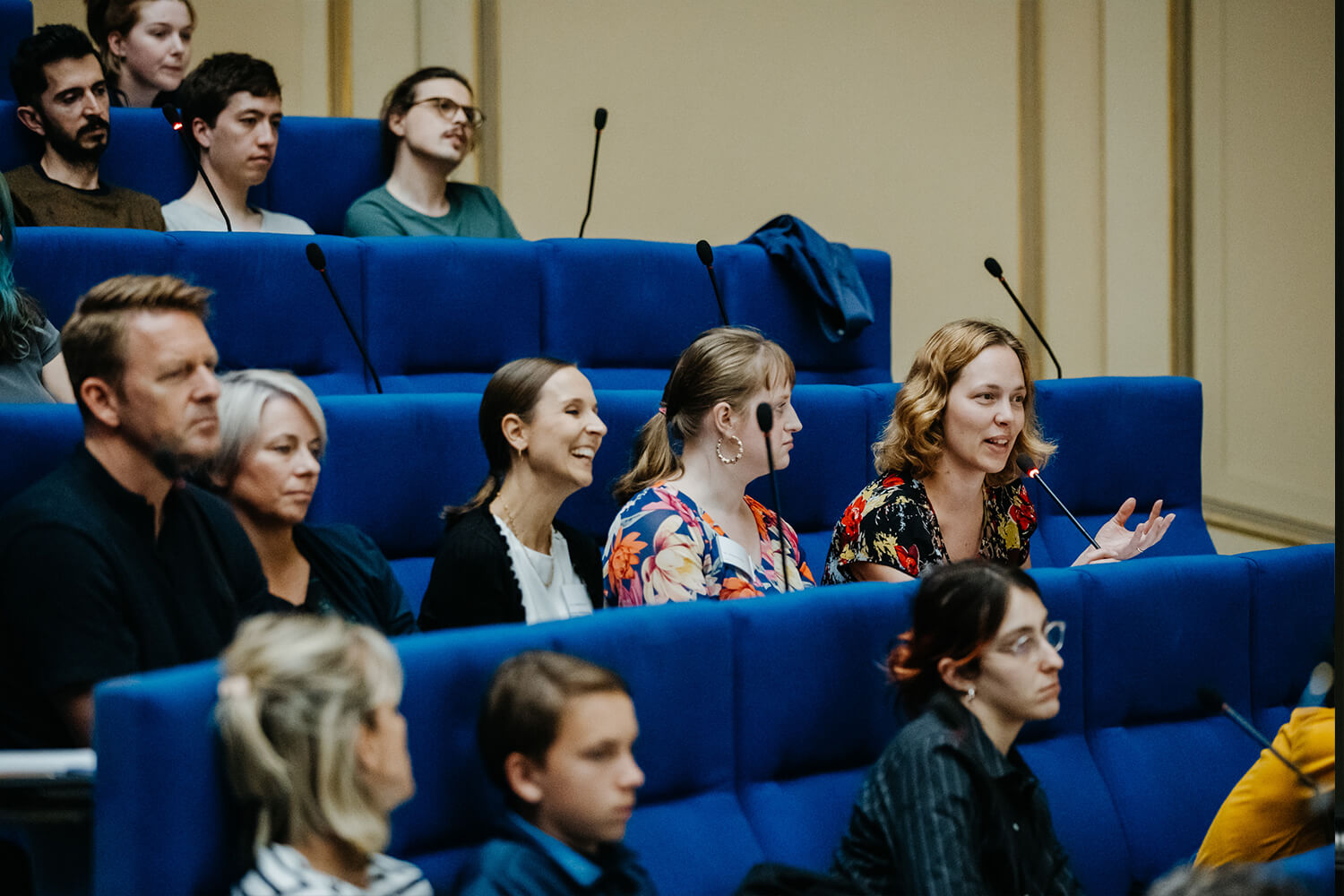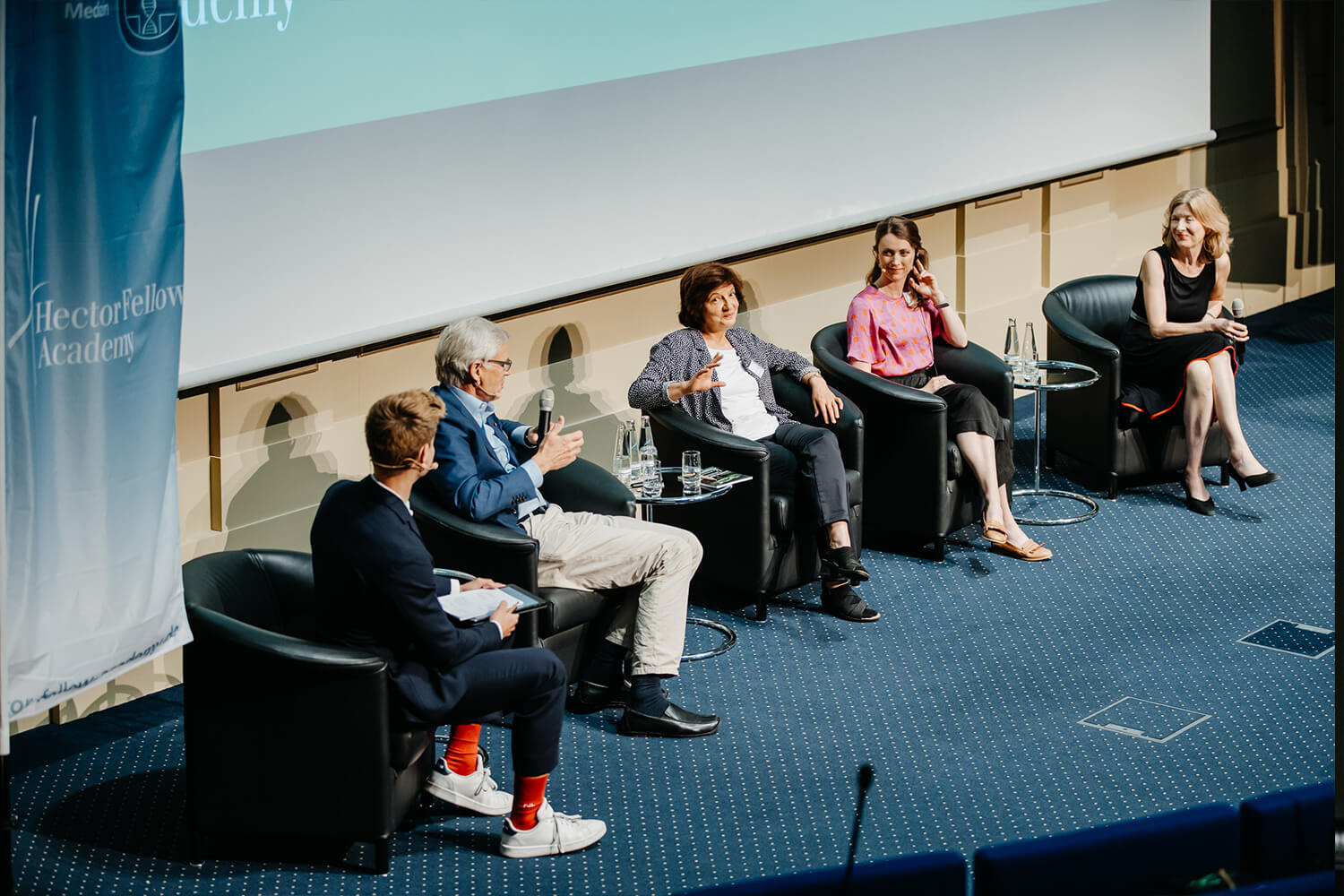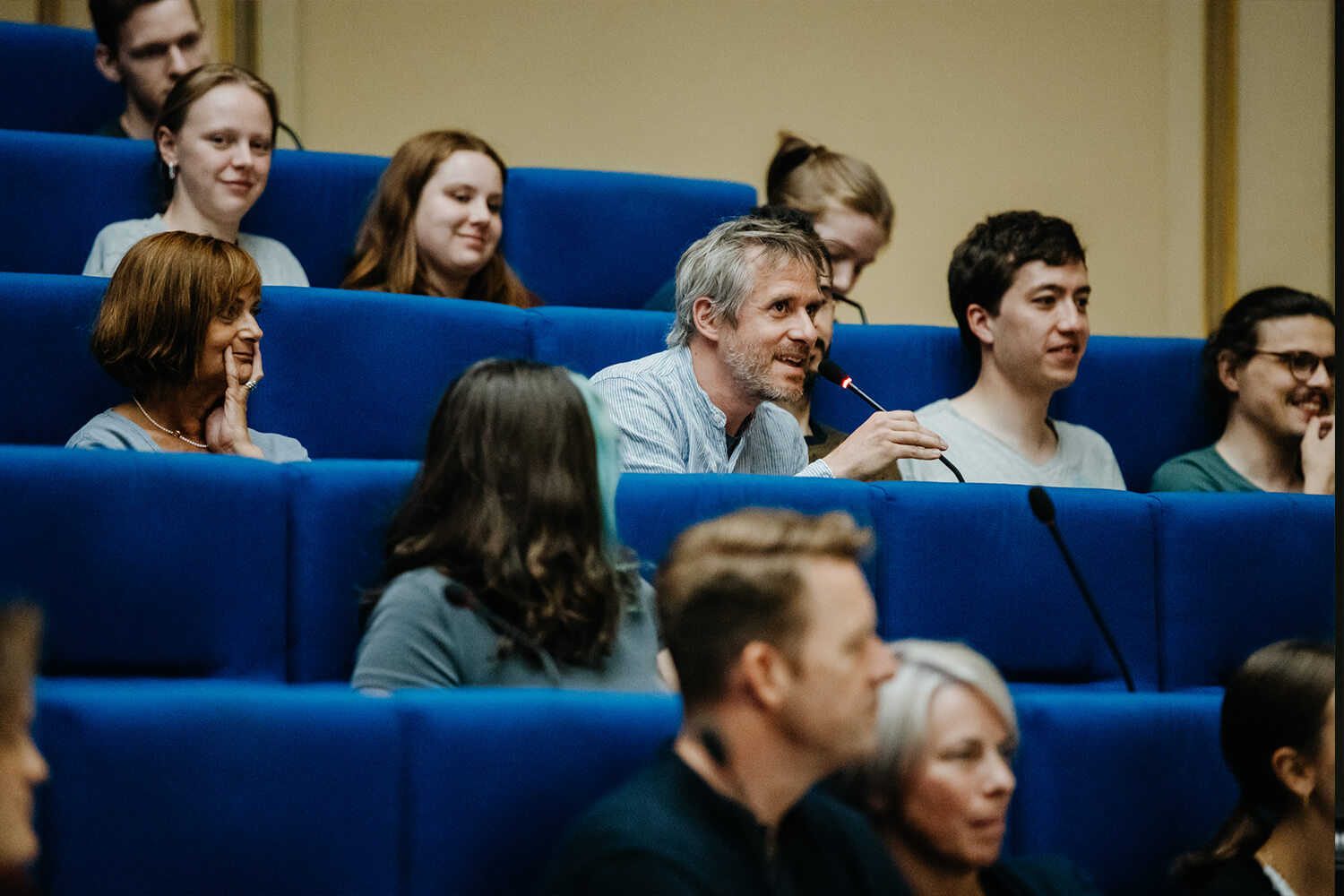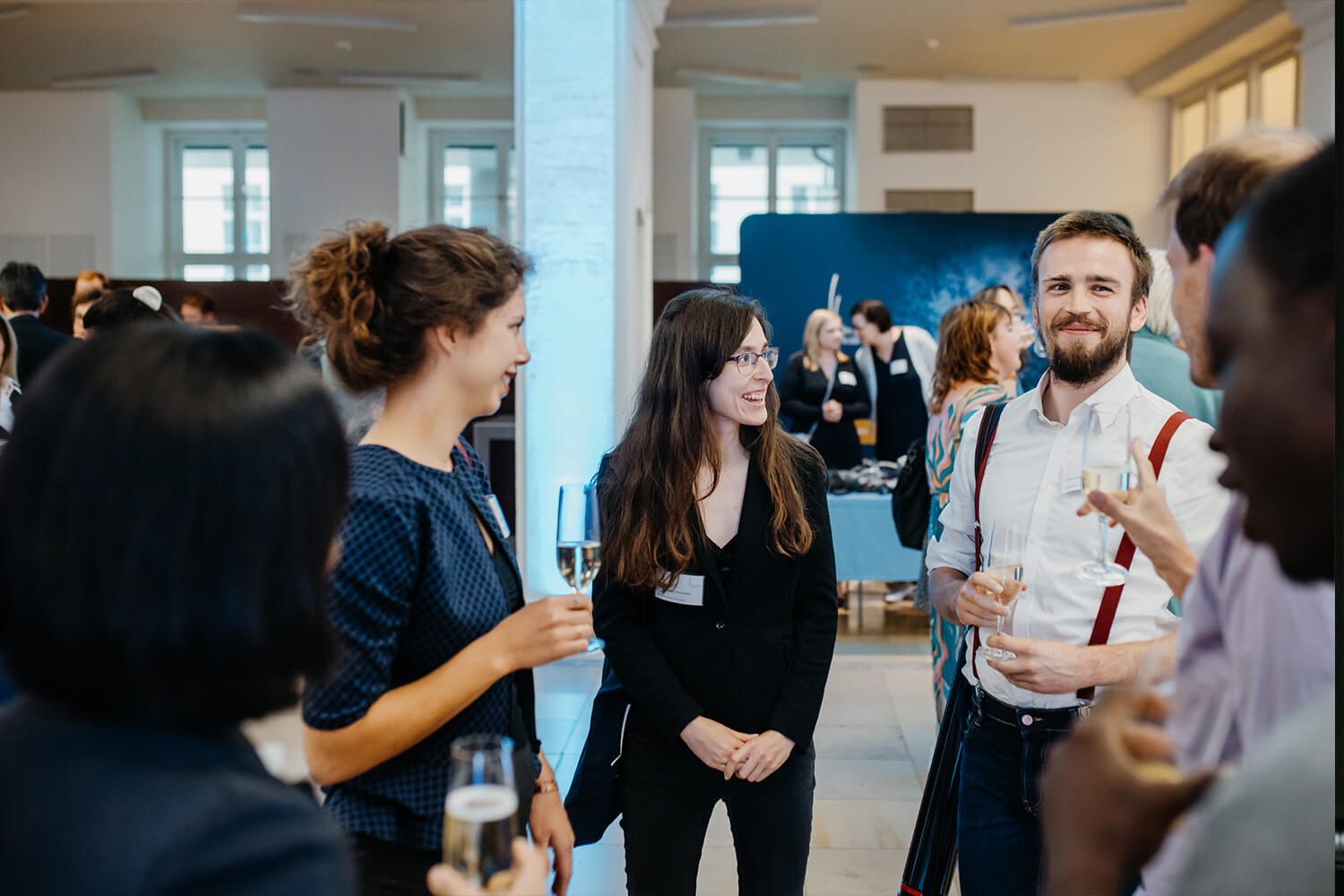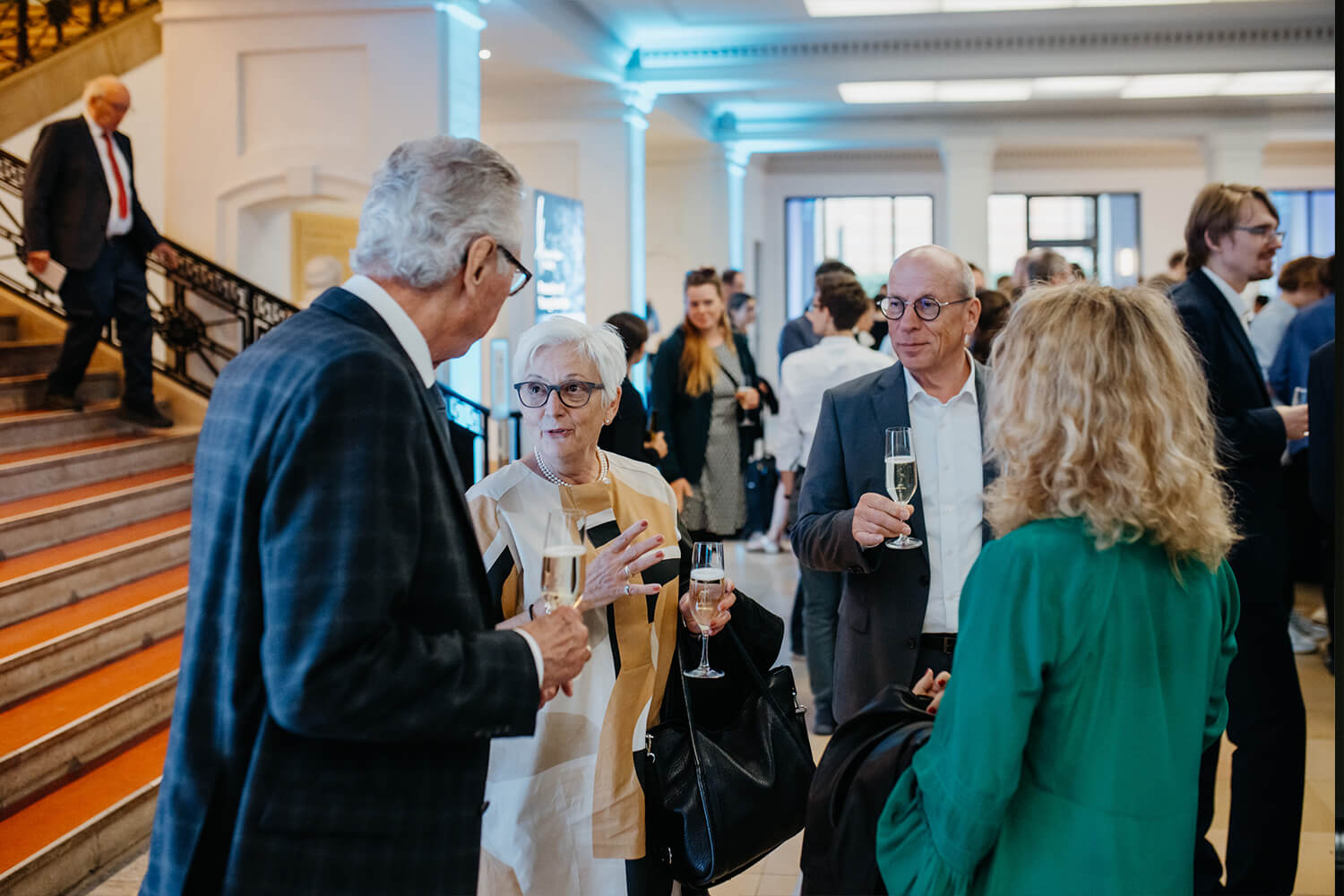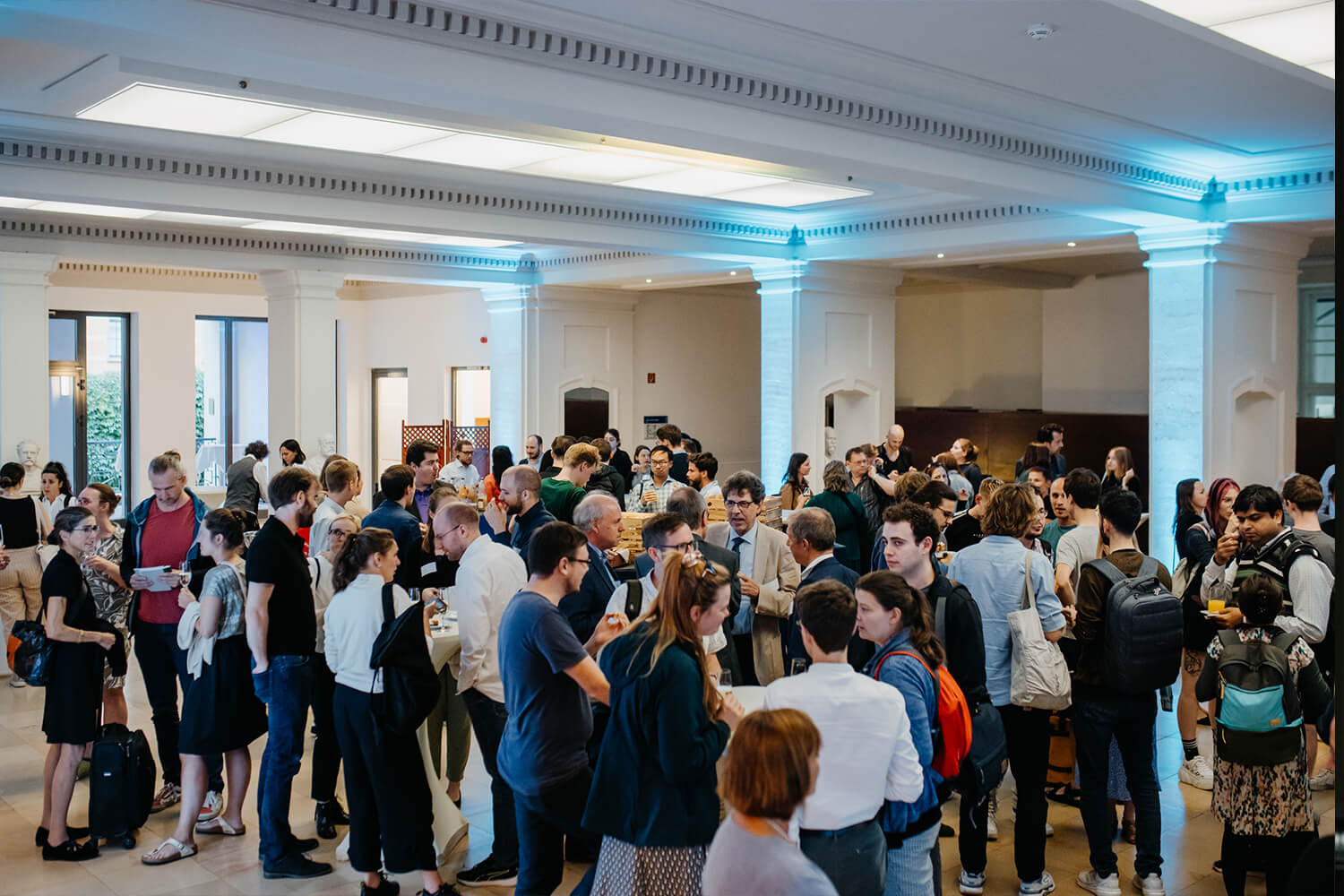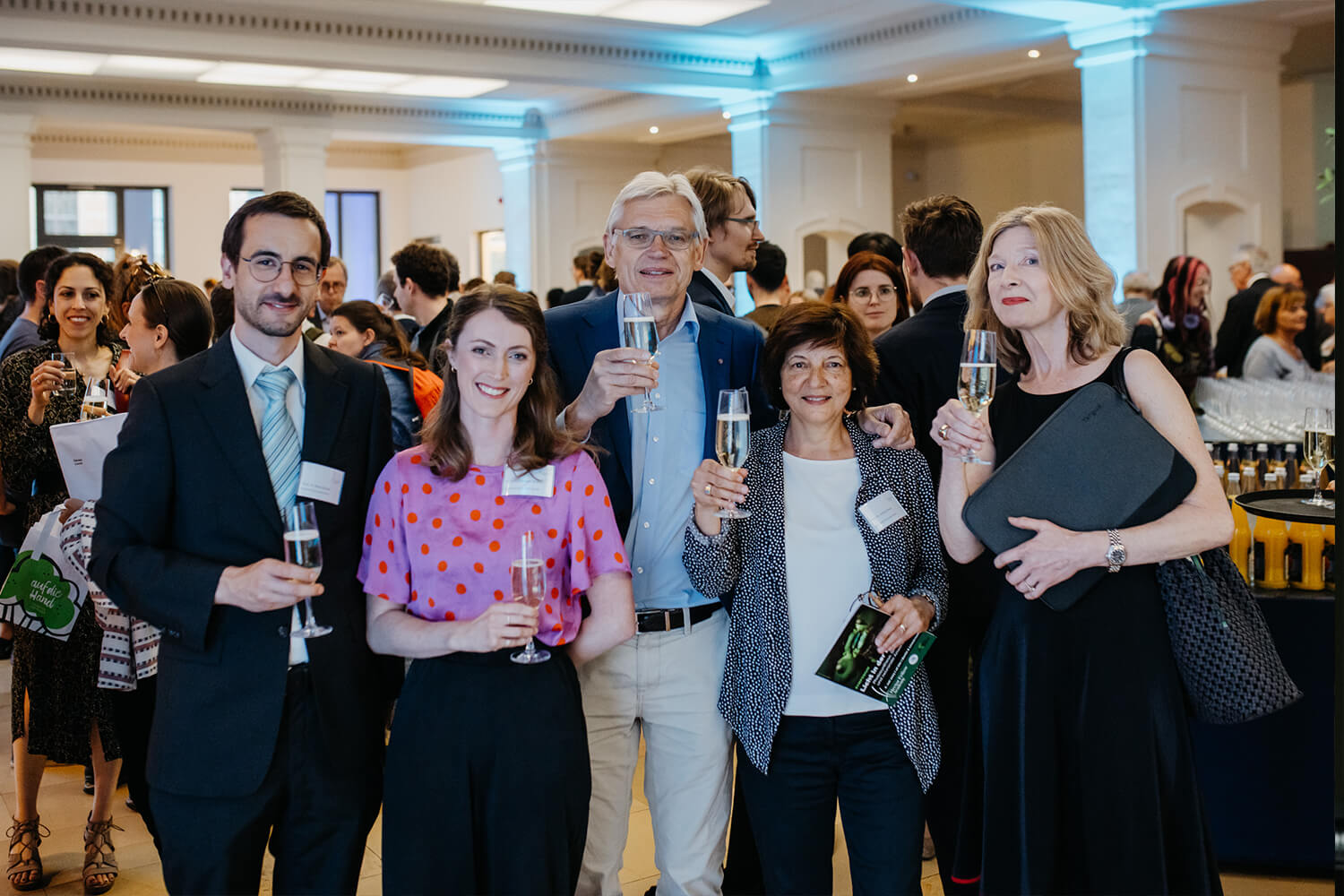Light in Biology
Science Evening 2023
Berlin — On July 6, 2023, the Science Evening of the Hector Fellow Academy 2023 entitled "Light in Biology — Photosynthesis, Visual Processes and Neuronal Applications" took place at the Langenbeck-Virchow-Haus Berlin and via livestream. Numerous interested guests on site and via livestream had the opportunity to immerse themselves in the fascinating world of light and to learn about its multiple significance in biology and science.
Without light, life on our planet would be unimaginable. Sunlight enables humans and animals to perceive their surroundings in color and is essential for plant growth. The fundamental importance of light and its multifaceted role in various life processes became clear during the outstanding lectures of renowned speakers on photosynthesis, evolution and biodiversity research, and its application in neuroscience.
Athina Zouni (Institute of Biology, Humboldt-Universität zu Berlin) led into the adventure of photosynthesis and talked about which approaches and mechanisms of photosynthesis could play a role in the near future with regard to energy supply.
Lauren Sumner-Rooney (Museum für Naturkunde Berlin) demonstrated the amazing variety of visual systems that evolution has developed in the animal world and talked about animals that have no eyes but can still perceive their environment, e.g. with the help of photoreceptors.
Hannah Monyer (Heidelberg University Hospital and German Cancer Research Center), one of the leading international scientists in the field of brain research, explored with the audience the state-of-the-art applications of light in the field of neuroscience. She explained how optogenetics, which uses light to manipulate and study neural circuits, offers new ways to better understand brain function and memory.
The scientific organizer and host of the evening was Peter Hegemann, Professor of Experimental Biophysics and Hertie Senior Professor of Neuroscience at Humboldt-Universität zu Berlin. He is a world-renowned photobiologist and co-founder of optogenetics. The moderator of the evening was Dr. Philip Häusser, known as a TV presenter for programs such as Terra X Lesch & Co and author. The welcoming words were spoken by Marc Erhardt, Executive Director of the Institute of Biology at Humboldt University in Berlin. Finally, Judith Elsner, Executive Director of the Hector Fellow Academy, thanked all those present for their support, their participation and their interest in the event. Cooperation partners for the event were the Humboldt-Universität zu Berlin and the Museum für Naturkunde.
The event continues the series of science evenings held by the Hector Fellow Academy throughout Germany. Here, renowned experts present current research topics in a generally understandable way and discuss visions for the future. The Hector Fellow Academy is a young academy of science that promotes cutting-edge interdisciplinary research in the STEM fields.
The next Science Evening will be held in Hamburg on July 11, 2024, and will explore the question "Why do children learn differently from adults?" The scientific organizer is Brigitte Röder, Professor of Biological Psychology and Neuropsychology at the University of Hamburg.
Light in Biology
Photosynthesis, Visual Processes and Neuronal Applications
Athina Zouni, Lauren Sumner-Rooney and Hannah Monyer allow the audience to immerse themselves in the fascinating world of light and explain its multiple importance in biology, science and for life on our planet.
Image Gallery
Scientific talks
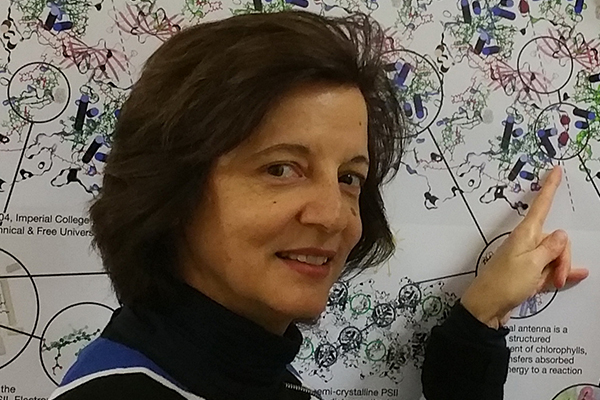
Athina Zouni
BiophysicsHumboldt-Universität zu Berlin, Institut of Biology
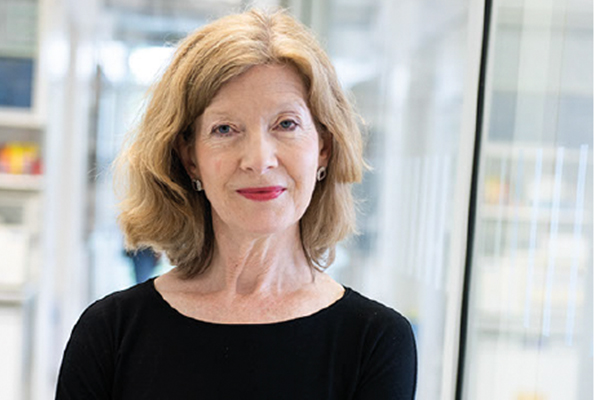
Hannah Monyer
Neurowissenschaften, GedächtnisforschungUniversitätsklinikum Heidelberg und Deutsches Krebsforschungszentrum
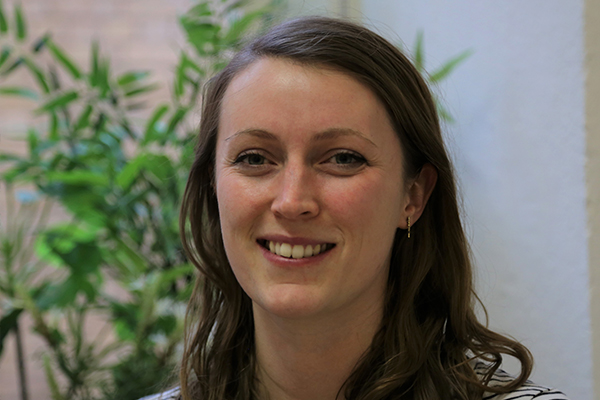
Lauren Sumner-Rooney
Biology, Evolution and BiodiversityMuseum für Naturkunde, Leibniz Institute for Evolution and Biodiversity Science

